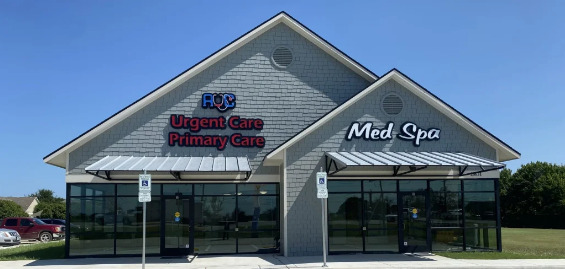In today’s fast-paced world, cardiovascular health has become a critical concern for many Americans. Heart-related emergencies can strike unexpectedly, leaving individuals and their loved ones in distress. When such situations arise, seeking immediate medical attention is of utmost importance. This is where Cardiovascular Urgent Care comes into play, offering specialized care to address heart health emergencies with absolute precision.
Understanding Cardiovascular Urgent Care
Cardiovascular Urgent Care is a specialized medical service designed to provide rapid and expert care to individuals facing heart-related emergencies. These emergencies may include chest pain, shortness of breath, irregular heart rhythms, and other acute cardiovascular conditions. The goal of Cardiovascular Urgent Care is to diagnose and treat these conditions promptly, preventing further complications and potentially saving lives.
The Importance of Specialized Care
When it comes to cardiovascular health, time is of the essence. Immediate intervention can make a significant difference in outcomes, and that’s why specialized Cardiovascular Urgent Care centers are essential. These centers are staffed with highly trained medical professionals, including cardiologists, nurses, and technicians, who are well-equipped to handle heart health emergencies.
Unlike traditional urgent care centers, which may focus on a wide range of medical issues, Cardiovascular Urgent Care centers are dedicated solely to addressing heart-related concerns. This specialization ensures that patients receive the most accurate and effective care for their specific condition.
Common Heart Health Emergencies
Cardiovascular Urgent Care centers are prepared to handle a wide range of heart health emergencies, including but not limited to:
- Chest Pain: Chest pain can be a symptom of various heart-related issues, including angina, heart attack, or myocarditis. Prompt evaluation is crucial to determine the underlying cause and initiate appropriate treatment.
- Shortness of Breath: Difficulty in breathing can be a sign of heart failure, pulmonary embolism, or other serious conditions. Cardiovascular Urgent Care professionals can assess the situation and provide immediate relief.
- Irregular Heart Rhythms: Conditions like atrial fibrillation can lead to irregular heart rhythms, increasing the risk of stroke and other complications. Specialized care can help stabilize the heart’s rhythm.
- High Blood Pressure: Uncontrolled high blood pressure can put significant strain on the heart and blood vessels. Cardiovascular Urgent Care can help manage and stabilize blood pressure levels.
- Heart Attack: A heart attack is a life-threatening emergency that requires immediate intervention. Cardiovascular Urgent Care centers are equipped to diagnose and treat heart attacks promptly.
- Stroke: While strokes are neurological emergencies, they often have cardiovascular causes. These centers can help identify and manage the underlying cardiovascular issues contributing to a stroke.
Benefits of Cardiovascular Urgent Care
- Rapid Assessment: Cardiovascular Urgent Care centers prioritize the swift evaluation of patients, ensuring that critical cases receive immediate attention.
- Specialized Expertise: The medical staff at these centers are highly trained in cardiovascular medicine, ensuring that patients receive the best care possible for their heart-related emergencies.
- State-of-the-Art Equipment: Cardiovascular Urgent Care centers are equipped with advanced diagnostic tools and treatment options to deliver precise care.
- Coordinated Care: These centers often work in collaboration with other healthcare providers, including hospitals and primary care physicians, to ensure seamless and comprehensive care.
- Preventative Measures: In addition to treating acute conditions, Cardiovascular Urgent Care centers can provide guidance on preventing future heart-related issues through lifestyle changes and medication management.
Choosing Cardiovascular Urgent Care
When facing a heart health emergency, it’s essential to choose the right care facility. If you or a loved one is experiencing symptoms such as chest pain, shortness of breath, or irregular heartbeats, consider the following steps:
- Call 911: If the situation is life-threatening, call 911 immediately for emergency medical assistance.
- Seek Cardiovascular Urgent Care: If the condition is urgent but not immediately life-threatening, consider going directly to a Cardiovascular Urgent Care center. These centers are equipped to handle a wide range of heart-related emergencies.
- Consult with Your Primary Care Physician: After receiving urgent care, it’s crucial to follow up with your primary care physician or cardiologist for ongoing management and preventative measures.
Cardiovascular Urgent Care plays a pivotal role in addressing heart health emergencies in the United States. With specialized expertise, state-of-the-art equipment, and a focus on rapid assessment and treatment, these centers ensure that individuals facing cardiovascular emergencies receive the precise care they need.
At Absolute Urgent Care, we are committed to providing Cardiovascular Urgent Care services with absolute precision. Our dedicated team of cardiologists and healthcare professionals is here to prioritize your heart health and well-being. In times of crisis, trust Absolute Urgent Care for expert care and peace of mind.


